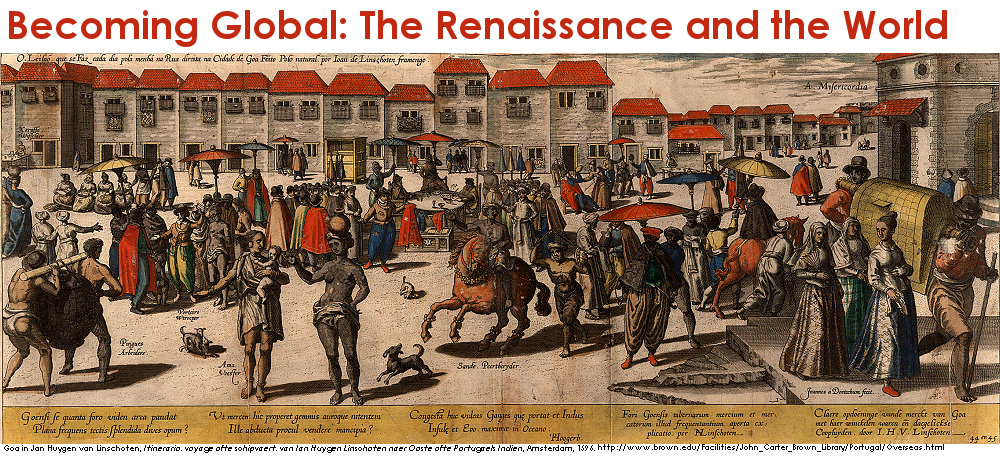
A Two-Day Conference
March 14-15, 2013
The Graduate Center, CUNY
Keynote Speaker: Serge Gruzinski
Thursday, March 14, 2013
7:30 PM
Proshansky Auditorium
Registration required. Please click here to register
The transoceanic voyages of the fifteenth century began a transformation of the planet’s ecology, economy, culture, and politics that produced the globalized world we live in today. From the exchange of capital to land use, from religious practice to cultural production, contact with hitherto separated peoples and places sparked ongoing changes worldwide.
Twenty years ago, the 500th anniversary of Columbus’ landfall in the “New World” and exhibitions such as “Circa 1492, Art in the Age of Exploration” provoked a rethinking of a global archaeology of culture. Rather than celebrating the accomplishments of the Renaissance or deriding what Walter Mignolo has rightly called its “darker side,” this conference seeks to examine the intermingled perspectives and productions that emerged during this remarkable period. Rather than focusing exclusively on imperial or subaltern perspectives, it aims instead to look at interactions among cultures worldwide. Europeans, native and transplanted, and indigenes, as well as mixed populations were agents in the creation of hybrid cultural productions of the Early Modern Period. Key to this inquiry is transculturation, a concept created by Fernando Ortiz that has been deployed to help explain new cultural forms emerging from the complex interaction of different traditions. Neither one culture nor the other nor the sum of their parts, these new transcultural forms are something entirely different that results from specific instances of cultural intermingling.
Speakers seek to interrogate the concept of a global Renaissance in particular geographical test cases — the Caribbean, Latin America, Africa, Asia and Europe — probing the impact of interaction, excavating the layers of conflict, or analyzing the hybrid visual or textual productions engendered by the unpredictable alchemy of complex mixtures.
Organized by: Clare Carroll (Comparative Literature), and James Saslow and Eloise Quiñones Keber (Art History)
Sponsored by The Renaissance Society of America, The Hispanic Society of America, and the Graduate Center, CUNY
Full details here: http://globalrenaissance.ws.gc.cuny.edu/
Becoming Global: The Renaissance and the World
Date: March 14, 2013 - March 15, 2013
Time: All Day
Location: CUNY Graduate Center, Elebash Recital Hall & Room 5111
Address: 365 Fifth Avenue, New York 10016 (View Map)



